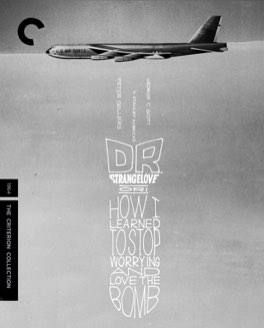STANLEY KUBRICK
Dr. Strangelove, or: How I Learned to Stop Worrying and Love the Bomb
Believe it or not, this was my first time seeing this film. I loved it, but I also thought to myself, this would have been a whole lot funnier, and a whole lot less funny, a few years ago. I’m way too young to have been around during the peak of cold war anxiety. I was alive while the conflict was happening, but I was only 10 years old when the Soviet Union fell in 1991. I remember watching the fall of the Berlin Wall on television, and I remember Mikhail Gorbachev, but I came along way too late for anything like real nuclear war panic.
As such, at virtually no point in the time I’ve had to watch this film, would it have resonated with me on the level it does now. The world is, once again, seemingly on the brink of global collapse. I don’t think it’s any real stretch to suggest we are probably at a similar level of paranoia and fear as people were when this film was originally released. That would not have been true even two or three years ago. So, to watch this film now, it meant something very different than it would have meant in the recent past.
I’m a big believer in the idea of laughing at scary things to make them seem less scary. I find it to be an extremely effective remedy for most fear. On that level, this film remains an almost perfect mix. Its story of well-intentioned insanity, blundering idiocy, and the worst possible scenario happening repeatedly, plays almost too well to a modern viewer. You could absolutely make the same film, with a few minor adjustments, in 2017. Of course, that’s really not a good thing. I’m glad we have this film, but I’m really hoping I’ll watch it again in a few years, and find it a lot less relevant than I do right now.
